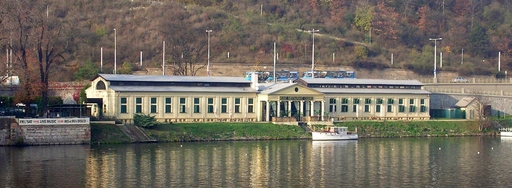
The oldest river resort in Prague. It has been preserved since its beginnings in the 19th century. The resort’s building dating from 1840 is a unique example of sports architecture of the era.
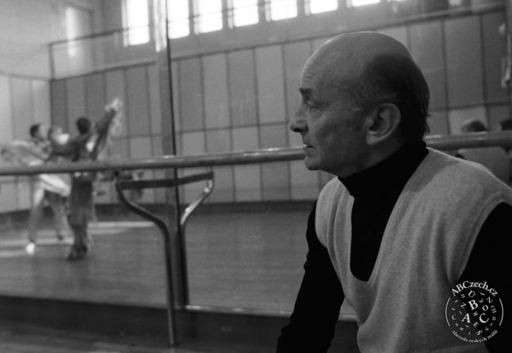
Distinguished Czech dancer, innovative choreographer, librettist, director and coach of the Czechoslovak society of gymnastic athletes. One of the founders of the group Studio Balet Praha.

2 December 1948, Prague
Legend of Czechoslovak football, president of the club Bohemians Prague 1905. Thanks to his famous penalty kick the Czechoslovak national team won the European Championship in 1976.
Antonín Panenka is one of the legends of Czechoslovak football. He played for Bohemians Prague 1905 for twenty years, then at the top of his career played for the Austrian club Rapid Vienna, with which he became a double league champion. He also used his football skills for the benefit of the national team. Thanks to his famous penalty kick at the championship finals, the Czechoslovak national team won the European Championship in 1976.
Antonín Panenka loved football even as young boy. His father was a great sports fan and took him to Slavia Prague, where he was rejected, as later in Dukla, due to his inadequate height. However, when they came to the recruitment of (today’s) Bohemians Prague 1905 and the eleven-year-old Antonín showed his skills, he was immediately accepted.
Panenka played his first league match at the age of twenty. In the seasons between 1967 and 1981, he played for his club as a midfielder a total of 230 matches, in which he scored 76 goals. In 1986 he was offered to play for Rapid in Vienna, in which he played for five years, with 127 matches and 67 goals. Antonín Panenka considers this period as the best part of his sports career. With the Viennese club, he played European tournaments regularly, which helped make him famous abroad. During his time in Rapid, Panenka won two league titles.
Because of his talent and football skills, Panenka joined the national team, making his debut in 1973 in the qualifiers for the World Cup in Scotland. With the national team, he became European champion in 1976, after a decisive penalty shot against West Germany. His penalty kick got the nickname “Panenka kick” (in Czechoslovakia it was called vršovický dloubák) and many football players have since tried to imitate it. Panenka and the national team also won a bronze medal at the European Championship in 1980. The last tournament he played as a member of the Czechoslovak team was the 1982 World Cup in Spain. During the nine years he played for the national team, Panenka played 59 matches and scored 17 goals.
Since the end of his active football career, Antonín Panenka has stayed in the world of football as the president of Bohemians Prague 1905. In 2014 he also ran for the Senate of the Czech Republic.
Panenka received a number of awards for his sports achievements, including the Medal of Merit, First Class in 2008 and Václav Jíra Award, awarded by the Football Association of the Czech Republic to people that have significantly contributed to the development of Czech football.
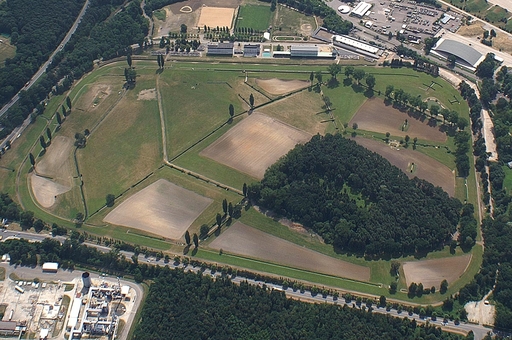
One of the most difficult steeplechase racecourses in the world on which galloping horse races are organised. The most famous of these is Velká pardubická steeplechase, which is one of the oldest Czech sporting events.
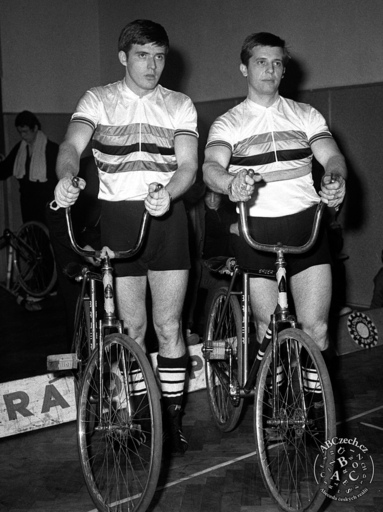
Players of cycle ball, 20-times world champions and 25-times champions of Czechoslovakia. They won the World Championship nineteen times and the European Cup sixteen times.
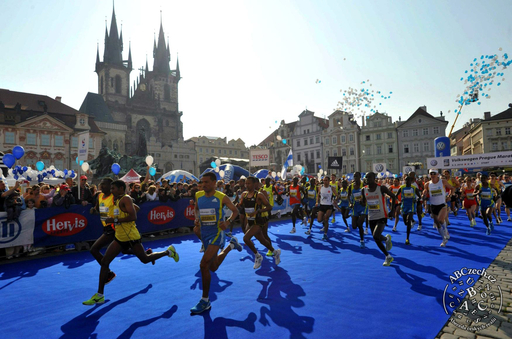
Marathon race founded in 1995. One of the most prestigious marathons in the world.
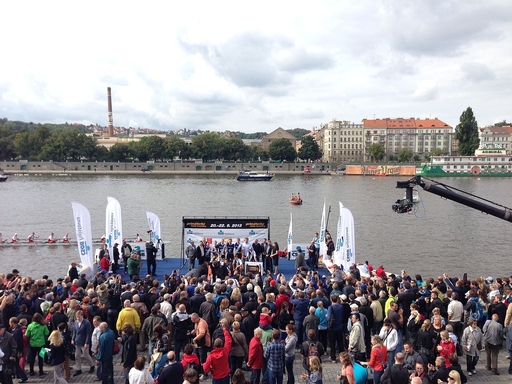
The most famous and one of the oldest rowing competitions in the Czech Republic. It has been organised since 1910 on a two-kilometre section of the river Vltava in Prague, under the auspices of the mayor of Prague. It features a unique turn below the Vyšehrad cliff.
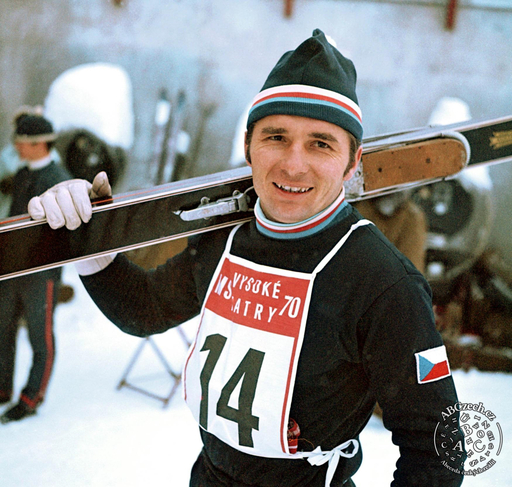
Czech ski jumper, holder of Olympic gold from the 1968 Winter Olympic Games in Grenoble, coach and vice-president of the Czech Ski Union.
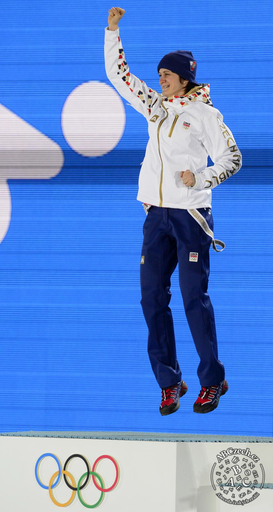
The most successful Czech speed skater specialising in long track speed skating. She is a triple Olympic winner, a multiple champion of the Czech Republic, a five-time European championship and a 21-time world champion, as well as holder of several world records.

Czech geologist, rock climber, adventurer, polar explorer and an internationally acknowledged scientist. In 1969, he became the first Czechoslovak to reach the South Pole.
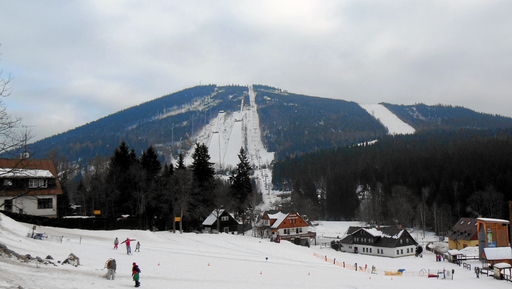
A very popular winter sport in the Czech lands, dating from the late 19th and early 20th century and connected with the Krkonoše mountain range.
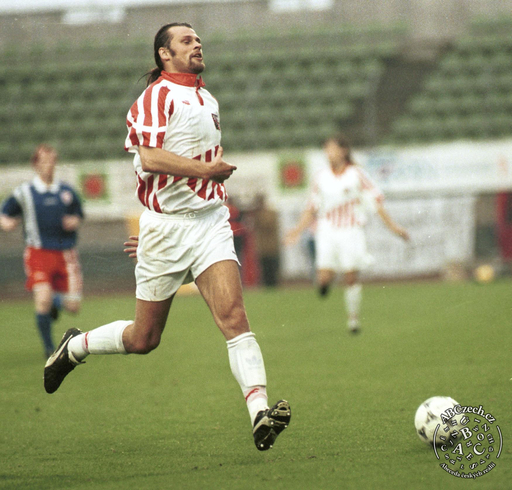
Czech football player who drew attention by his performance at the 1990 World Championship in Italy, which gave him a chance to play for Genoa C.F.C. His bohemian lifestyle significantly shortened his football career.
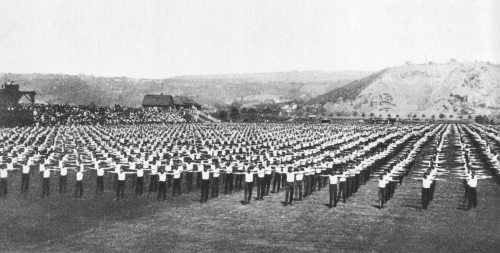
Mass public gymnastics events intended to promote communist ideology and provide an example of the communists’ care for people’s health. They were organised at five-year intervals.
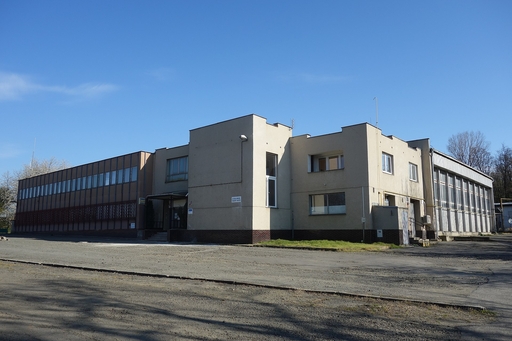
Organisation formed in 1951 after the Soviet model, intended to provide citizens with armed training. Gradually it became the central organiser of technical hobbies. After November 1989, it was transformed into the Association of Technical Sports and Activities.
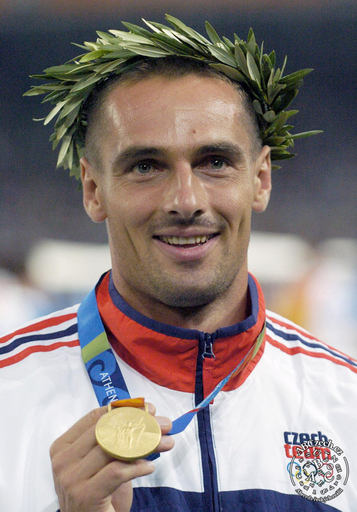
26 November 1974, Lanškroun
Czech athlete, decathlon athlete, winner of a gold medal from the 2004 Olympics in Athens. The first decathlon athlete to achieve more than 9 thousand points and with the score of 9,026 held the world record for eleven years.
At first, Roman Šebrle trained football for thirteen years. He started training athletics in 1990, beginning in TJ Týniště nad Orlicí and then transferring to Pardubice athletics club for a period of three years. In 1996 he transferred to Dukla Prague and the following year, 1997, participated in the World Championship in Athens, finishing in 9th place. In the same year, he won a gold medal at the World University Games in Italy.
The following seasons were very successful for Šebrle; in 2000 he won two silver medals, the first at the European Indoor Athletics Championships and the second at the Olympic Games in Sydney. At the beginning of 2001 in Lisbon he became indoor world champion and at the May meeting in Götzis he won with a score of 9,026, setting a new world record. The record was not broken until 2012 by Ashton Eaton from USA, who scored 9,039 points in decathlon. From the 2004 Olympics in Athens Roman Šebrle brought home a gold medal. In the same year he was promoted to the rank of major by the minister of defence and the president awarded him the Medal of Merit of the Second Class.
Throughout the following three seasons Šebrle continued winning medals at great world and European championships. In 2007 he went to the South African Republic to prepare for the forthcoming indoor European championship and during one of his training sessions he was hit in his right shoulder by a javelin. In spite of this, he managed to prepare for the championship and won his third indoor European gold.
At the 2008 World Championships in Osaka, Šebrle won his first world champion title, the only one that had been missing in his collection. In the following years, Šebrle increasingly suffered from health problems, but he always managed to recover in time for large meetings and to achieve excellent results. In 2009 he won the bronze medal in heptathlon at the European Indoor Championships in Torino. At the 2010 World Indoor Championships in Athletics in Doha he finished at the 5th place.
His participation at the other great meetings was marked by health problems. In 2011 he won bronze at the European Indoor Championships in Paris and the following year he finished the sixth at the European Indoor Championships in Helsinki and his score of 8,052 points ensured his participation at the 2012 London Olympics. The London meeting turned out to be Šebrle’s final decathlon competition in his athletic career, and he did not finish it due to health problems. He announced the end of his professional career in June 2013.
However, Roman Šebrle continued to do sport and in the autumn of 2013 he started his golf career. In 2014 he became a news presenter at TV Prima. Roman Šebrle won the public poll Sportsman of the Year five times, from 2002 to 2006, in 2000 he was the third and in 2001 the second. With his wife Eva, a former member of the national team in 400 and 800 metres track, he has a son Štěpán and a daughter Kateřina.
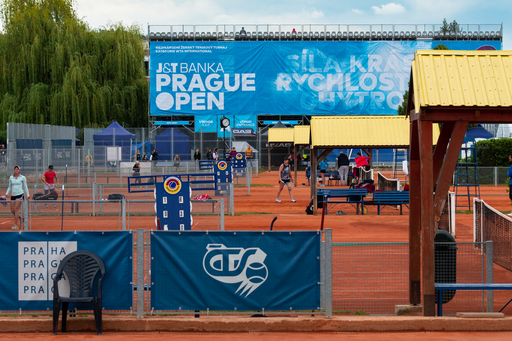
A sport for two or four players. It comes from England and is one of the most widespread and followed sports in general.

Unified outfit for physical education lessons. In socialism, it consisted of a white t-shirt, shorts whose colour depended on the sex and sports shoes – the so-called Jarmilky and Toníky.
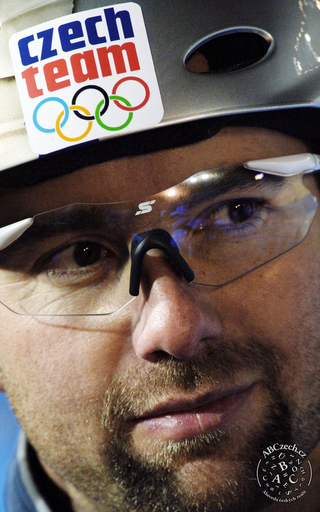
Czech freestyle skier, Olympic winner in the freestyle aerials competition in 2002, where he performed the first triple back flip with five twists in the world.
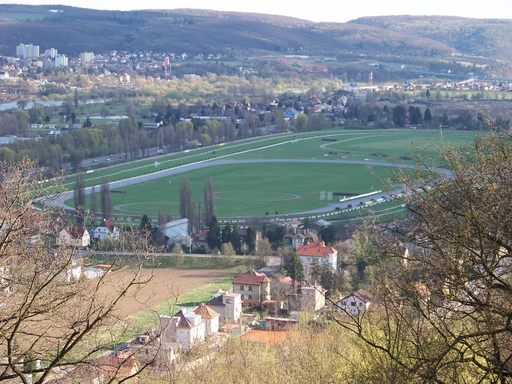
Prague race track with a rich history, where galloping and trotting horse races are organised, including the most famous race – the Czech Derby.
2016-2020 ABCzech.cz - © Filozofická fakulta Univerzity Karlovy
Content from this website may be used without permission only for personal and non-commercial purposes and with the source cited. Any other use is allowed only with the authors' consent.
This web application Sonic.cgi meets GDPR requirements. Current information can be found here.